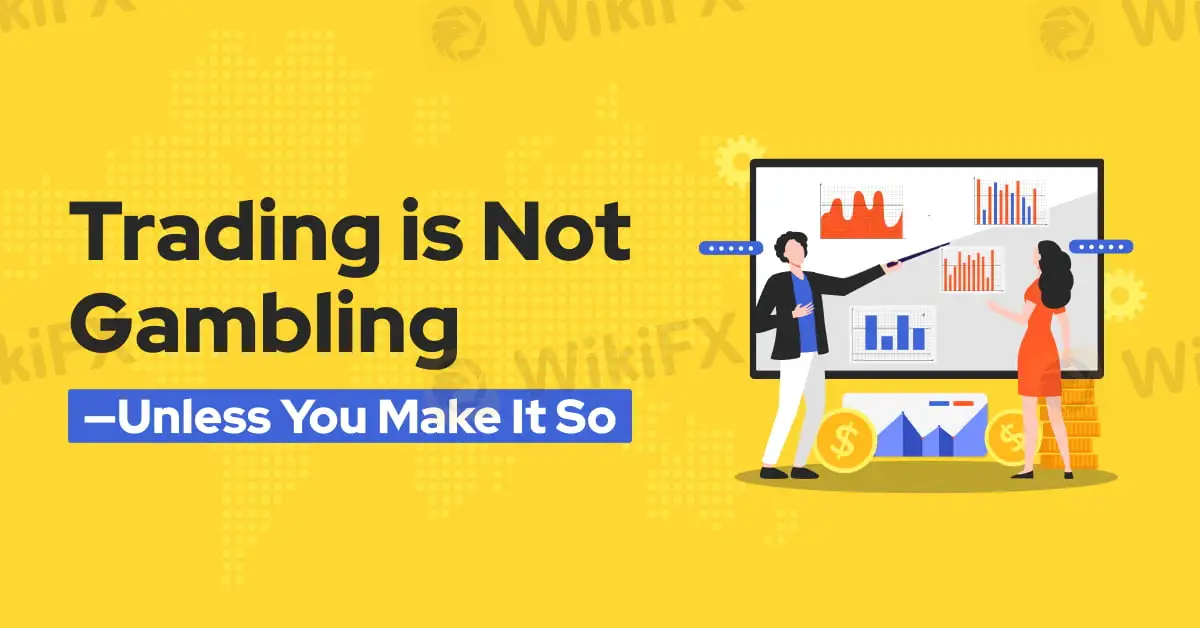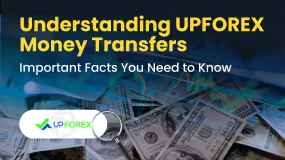Abstract:In the world of online trading, a common misconception persists: trading is often seen as no different from gambling. This belief is particularly prevalent among newcomers, who may view the financial markets as a fast-paced game where winning is just a matter of luck. But trading, when done correctly, is far from mere chance!

In the world of online trading, a common misconception persists: trading is often seen as no different from gambling. This belief is particularly prevalent among newcomers, who may view the financial markets as a fast-paced game where winning is just a matter of luck. But trading, when done correctly, is far from mere chance. Professional traders follow strategies built on research, risk management, and disciplined decision-making. However, when trading is approached without these critical elements, relying solely on emotion or impulse, it can quickly become indistinguishable from gambling.
At its core, trading is about taking calculated risks. Each trade involves careful assessment, analysis, and a clear understanding of the potential outcomes. Successful traders do not simply “bet” on market movements; they make informed decisions based on data, patterns, and proven strategies. The difference lies in the mindset. A gambler relies on hope and the thrill of the unknown, often doubling down on losses in a desperate attempt to recover. A skilled trader, on the other hand, operates within a structured plan, using established risk management techniques to protect capital and limit exposure. The outcome of each trade is less about luck and more about methodical risk management.
A significant danger for traders is allowing emotions to take control. Emotions such as greed, fear, and FOMO (fear of missing out) can cloud judgment, leading traders into reckless decisions that feel less like strategy and more like chasing quick wins. For instance, when greed takes over, traders might over-leverage or over-trade, hoping to accelerate profits. Similarly, FOMO can drive traders to enter volatile markets without a clear strategy, simply because they fear missing out on potential gains. These impulsive actions lack the discipline required for long-term success, aligning more with the behaviour of a gambler than that of a disciplined trader.

In fact, trading without a clear risk management plan is essentially gambling. Effective risk management is the foundation of professional trading, where each trade is weighed carefully to avoid unnecessary losses. This involves setting stop-loss levels, deciding on acceptable risk per trade, and knowing when to exit a position. Without these protections in place, a trader becomes vulnerable to significant losses, caught in a cycle of impulsive trades that leads to emotional fatigue and financial damage. This spiral often ends in burnout, as the initial excitement of quick wins gives way to the stress and despair of bigger losses.
To avoid this cycle, traders must recognize the importance of patience and discipline. Progress in trading does not come from one lucky trade or a string of wins—it is built gradually, through consistent learning and the steady refinement of strategies. Mastering the basics of risk management, technical analysis, and emotional discipline takes time, but it is this commitment to methodical improvement that distinguishes a true trader from someone merely gambling in the markets.
For traders serious about their long-term success, trading must be viewed not as a high-stakes gamble, but as a skill that requires knowledge, practice, and a deep respect for the risks involved. Trading becomes gambling only when traders abandon strategy for emotion, chasing quick profits without regard for risk. By focusing on calculated decisions, setting realistic goals, and maintaining emotional control, traders can avoid the pitfalls of impulsive trading and move toward a sustainable path of growth and success.
So, if you find yourself trading on instinct rather than strategy, it is time to step back and reassess. Ask yourself: are you trading to win, or simply gambling in hopes of a lucky break? The answer to that question will determine whether your trading journey leads to steady progress or to the destructive cycle of gambling habits.











